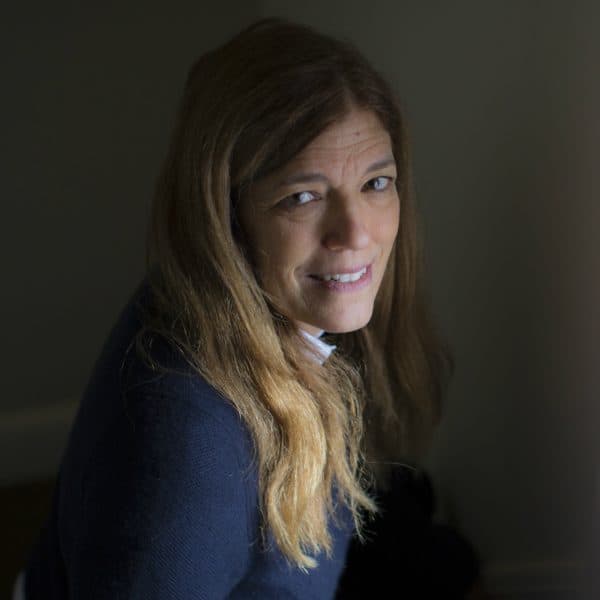Advertisement
Commentary
I'm Worried About The Psychological Toll On Health Care Workers. They Need Help
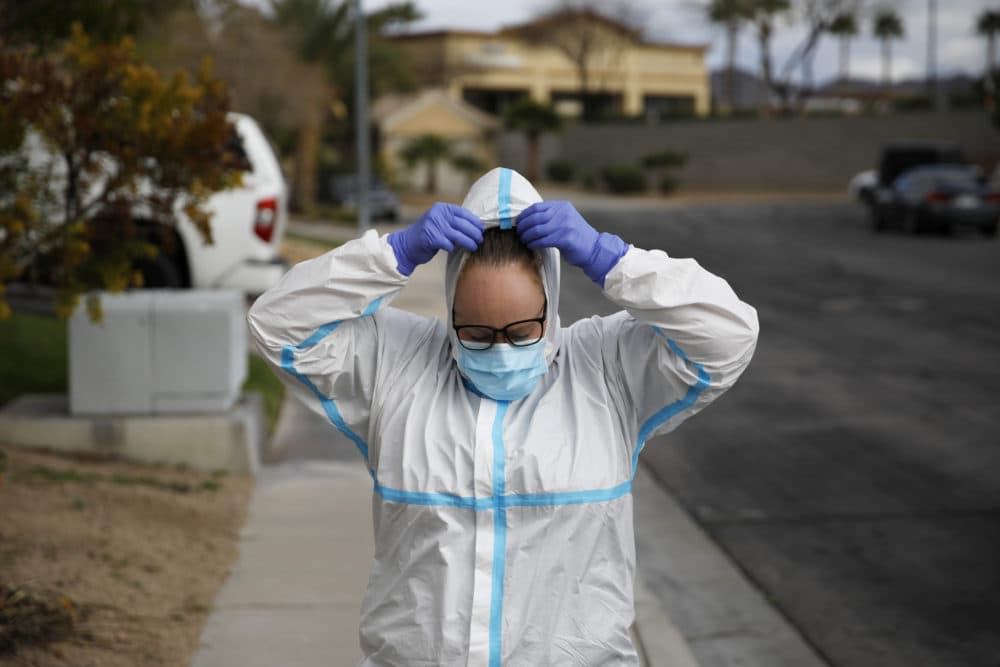
Our health care workers are under immense stress.
They are facing dire shortages of personal protective equipment (PPE). They’re being asked to make life-and-death decisions that are potentially inconsistent with their values. They fear not only compromising their own personal well-being, but also that of their families. They are facing incomprehensible and unpredictable situations each day, that for some may result in delayed anxiety symptoms, traumatic memories, PTSD or depression.
As a psychiatrist, the colleague of countless healthcare workers, the mother of a medical intern potentially in harm’s way, and a survivor of suicide loss, even I cannot wrap my head around this psychological toll. The United States has the most expensive healthcare system in the world, yet our health workers are confronting hazardous work conditions. This will have lasting implications — both on future policymaking and on the psyches of these critical players.
To understand what our doctors and nurses are enduring, I asked health care experts and physicians who have practiced medicine during crises, to offer frontline health care workers actionable, real-time support, tips and techniques to cope.
If you yourself are a health care worker, or know somebody who is, this is for you.
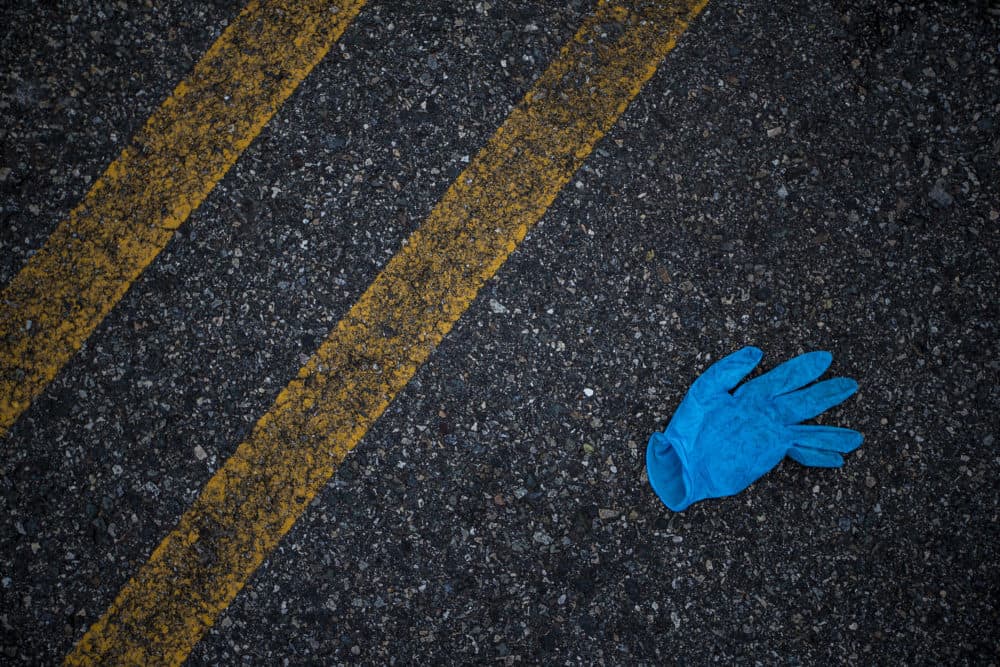
Commonalties with the AIDS crisis and the necessity of support groups.
“COVID-19 is evolving more rapidly than AIDS, but there’s the same sense of powerlessness at one level, and a rage from lack of personal agency, and that’s what worries me,” said Michael F. Myers, a professor of clinical psychiatry at SUNY-Downstate Medical Center in Brooklyn. He led support groups for physicians during the AIDS epidemic, and is also a leading expert on physician suicide.
He finds parallels with the COVID-19 pandemic, which he terms a “moral injury” for current healthcare workers. Doctors battling AIDS in the 1980s were “practicing battlefield medicine and needed protection.” In support groups, doctors:
"… spoke over and over again about their exasperation and preoccupation with the ever-present need for more funding — for research, for drugs and for staff to assist them in their mission. They were often woeful and terrified about public news items predicting a projected huge increase in numbers of patients with AIDS. Where would they find other doctors to help them?"
Sound familiar?
Myers’ AIDS support groups were so helpful, that he’s now working to establish virtual support groups and structures for frontline health workers battling COVID-19. The groups are an effort to normalize their feelings, provide camaraderie and offer a safe space to vent, since many health care workers fear retaliation for speaking out.
He is currently co-facilitating with Dr. Ramaswamy Viswanathan a weekly group for hospitalists and one for emergency medicine physicians at University Hospital Brooklyn:
"What we've noticed so far is the huge sense of solidarity and connection with each other in the group. Some are living separately from their spouses and kids because they're so fearful of contagion from their work to home. They recoil at being called 'heroes,' because they are simply doing what they've been trained to do …They feel dreadful that their patients are dying all alone and that their loved ones cannot be at their bedside. So far, they’re looking forward to this weekly opportunity to leave their work for one hour simply to assemble and focus on themselves and each other."
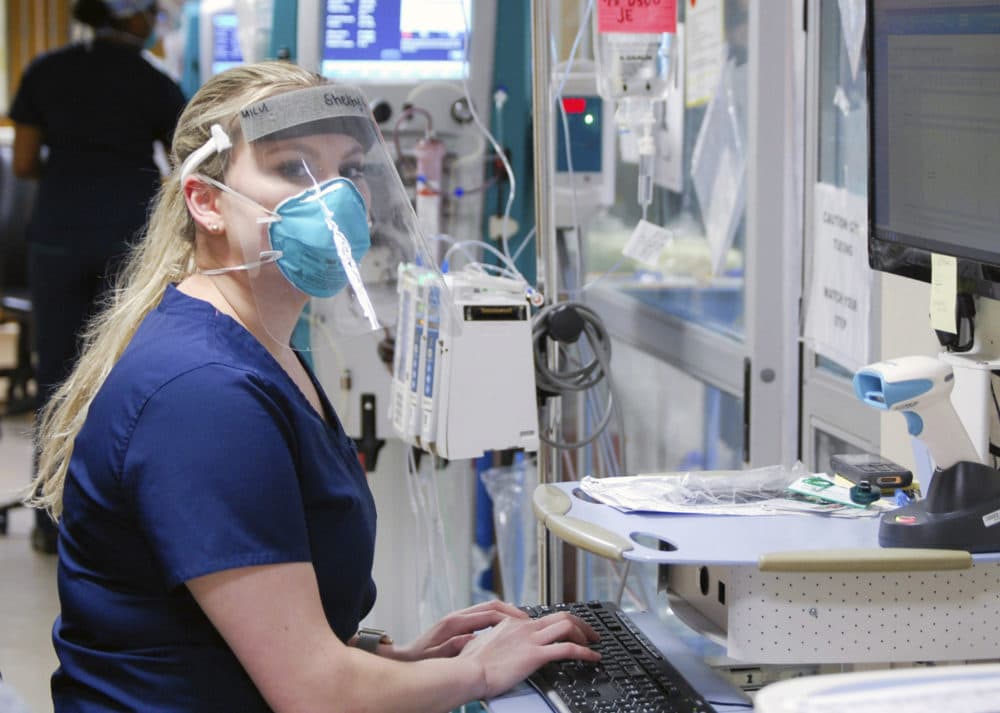
Health care workers need to set boundaries.
Pamela Wible, MD, a physician suicide prevention advocate, believes working conditions without adequate PPE is a human rights violation akin to “sending soldiers in without bullets and guns.” She said physicians on the frontline are being treated like they’re expendable, while the media and citizens cheer their heroism from their living rooms.
In her research on 1,300 physician suicides, Wible found that completed suicides were often precipitated by hazardous work conditions that placed them in harm’s way. Doctors without proper PPE may also be unwittingly infecting patients, which is an unthinkable psychic burden. She urges doctors, politicians and the media to consider the power of their words: the phrase “may be unknowingly infecting patients” has more weight than “lack of supplies.”
“Don’t make decisions out of fear, desperation, or intimidation,” she said, referring to the untenable position health care workers are often facing during the pandemic. “Is your life worth being fired?”
She says physicians should set boundaries and discuss what decisions they’re comfortable with by speaking with their families in a moment of calm. If a physician, for example, is caring for an immunocompromised child, or an elderly parent or they themselves have asthma, they may need to make an agonizing personal decision about their willingness and/or capacity to serve on the frontlines. Doctors who do not wish to work on the frontline may contribute by doing telehealth and/or utilizing their skills in other areas.
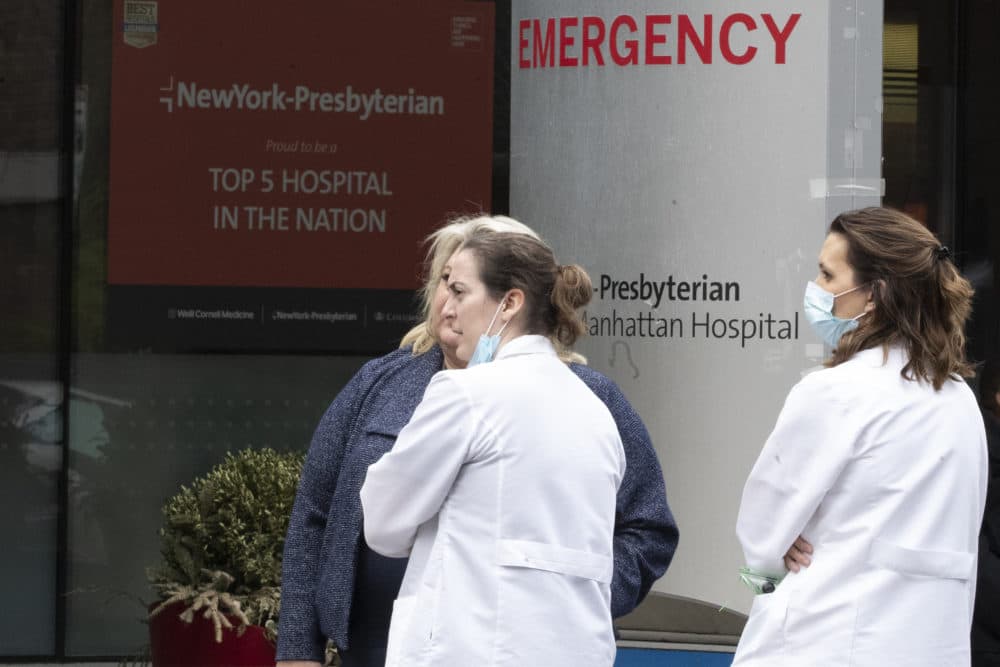
Coping with “moral distress.”
Kaethe Weingarten, Ph.D. leads a program sponsored by the Migrant Clinicians Network and has created guidelines for physicians who are coping with these kinds of ethical dilemmas. They include everything from creating a buddy system for each shift and checking in regularly — even if it’s just eye contact — to doctors reminding themselves of their intention to do no harm, while recognizing that the circumstances, not the physician, may produce harm.
The demands of the pandemic necessitate increased understanding from all of us, Weingarten said. And this includes stressed patients who may lash out at the nurses and doctors who are not responsible for the scarcities, but rather victims of it, too:
"Peer support while this is happening is going to be key for long-term mental health of health care workers. We can’t wait for support to happen later, as it does for veterans, who get little psychological first aid until they have left the theatre of war."
The aftermath of the pandemic on health workers is not going to be rosy and will not be ameliorated by applause and idol worship in the media. Frontline health workers’ concerns should be taken seriously, as they publicly — and painfully — confront the desire to do their jobs, while navigating toxic circumstances. (This is what results in "moral distress," in Weingarten's language.)
[P]hysicians on the frontline are being treated like they’re expendable, while the media and citizens cheer their heroism from their living rooms.
Without proper support systems and the full weight of the federal government, frontline health workers must turn to the basic tenet of battling COVID-19: mitigation. Banding together now to protect each other’s mental health — even in the smallest of ways -- can have a lasting impact later.
Before the pandemic, many physicians have felt ashamed to access mental health services, concerned about repercussions on their career and the ethos that they should be able to function despite overwhelming feelings. During this pandemic and as we continue forward, ongoing support around their shared experience can be critical to heal.
Focusing on the light at the end of the tunnel, however dim it may seem at the moment, is also a coping strategy. And though health care workers abide by the ethos that they should be able to save everyone, it’s more important than ever for these workers to simply accept that they are doing the best that they can under impossible circumstances. In the aftermath with the recognition of the toll this takes, we need to make every effort to ensure this kind of sacrifice is not needed again.
For more information on resources for healthcare workers visit https://faculty.uwmedicine.org/covid-19/ and http://psychiatry.ucsf.edu/coronavirus.
